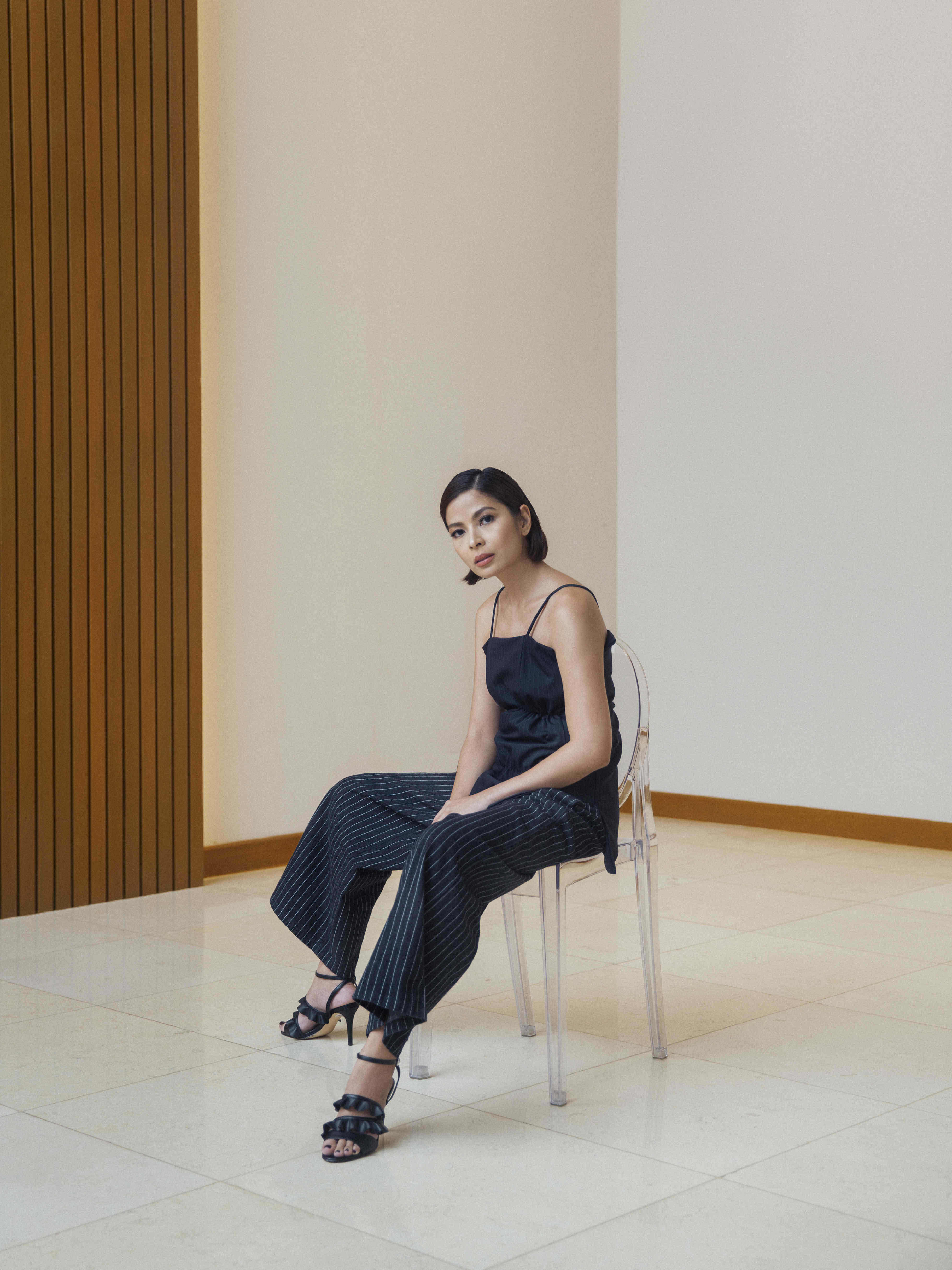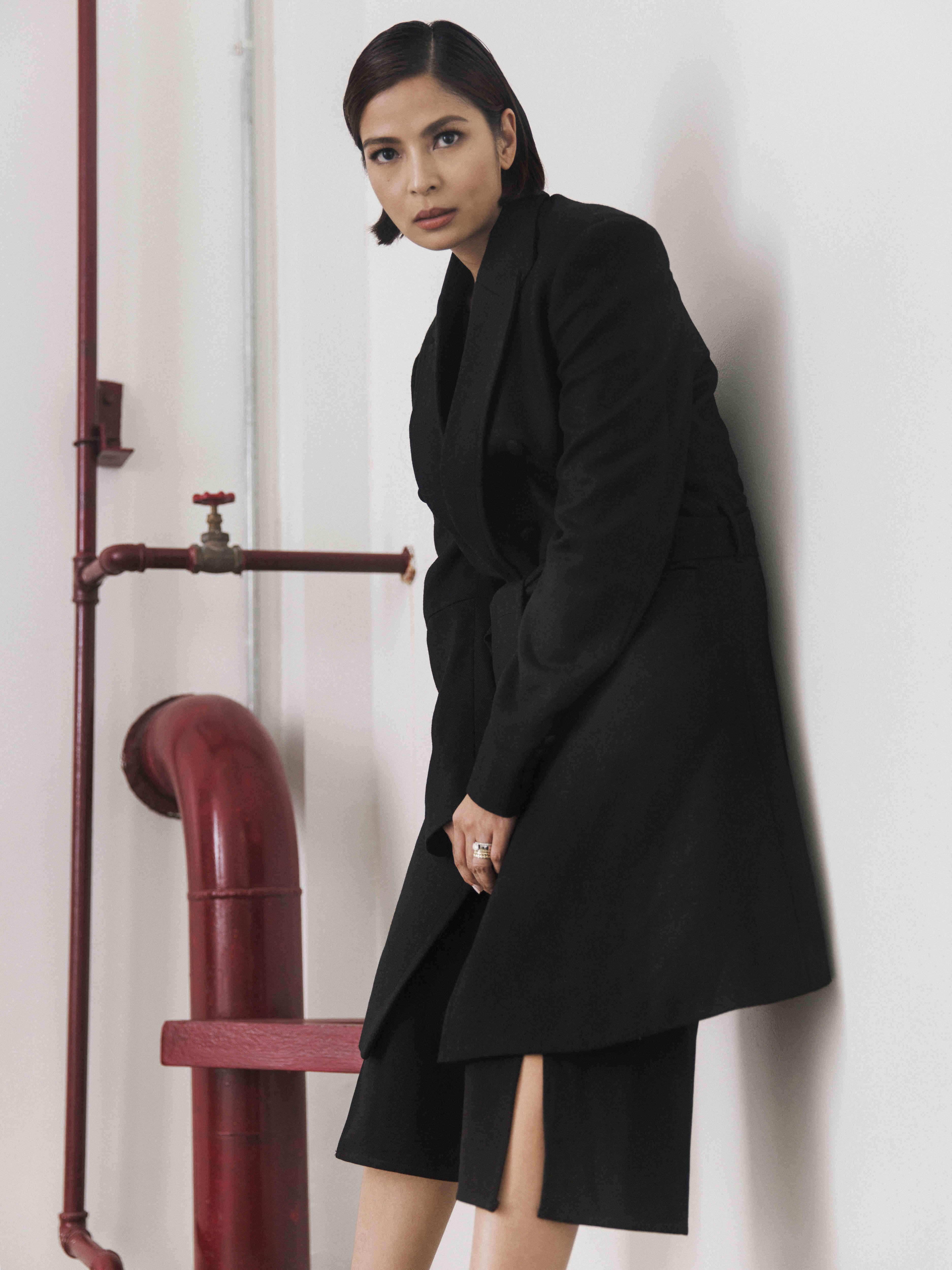In between casual conversations about beauty products, Rissa Mananquil-Trillo provides insights on social media: “I think it has definitely changed entrepreneurship,” the Happy Skin co-founder says of how the digital audience has played a huge role in the homegrown brand’s early beginnings.
“[When Happy Skin started,] we were competing with brands that had budgets for TVCs, billboards, and print ads. And as a start-up, we only had Instagram,and Facebook. But these platforms have become great equalizers, whether you’re a big global brand or just a shop around the corner. Everyone is given an equal opportunity to be discovered on social media. That is what I feel has been a big game-changer in the business, and it has helped a lot of homegrown brands.”
Even to those who are averse to social media, Mananquil-Trillo’s take makes a lot of sense. “It’s an exciting time because, even for me, whenever I browse social media, I discover so many new brands even from other countries. And I’m hoping one day, from across the world, someone will discover Happy Skin, too.”

Passing on an invaluable childhood
As a child, Mananquil-Trillo was teased for her complexion. “But I wasn’t bothered about it, maybe because I grew up in an environment where I felt much love. I’m happy I grew up in an environment where I was encouraged to read [and] pursue my passions.” As she’s now raising her daughters Celestia and Audra with her husband Paolo, she’s resolved to bring them up in the same way. “The way we raise them is not through [telling them,] ‘Oh, you’re so pretty, your dress is so nice.’ Rather, we reinforce good values, the right traits, and skills.
“I think it’s a common mistake that parents make because naturally, people like to get complimented on their appearance. But I want my daughters to feel confident not just about how they look but also what they can do in the future, even at a young age.”
[one_half padding=”5px 5px 5px 5px”]

[/one_half]
[one_half_last padding=”5px 5px 5px 5px”]

[/one_half_last]
Mananquil-Trillo recalls some of the less pleasant parts of her youth: how her neighbor crush had teased her as negra, how she was called “Somalian” for her skinny figure, how a friend’s ex called her and her barkada “pangit” (which they proceeded to reclaim by calling their group the Ugly Duckling Club). “I’m sure those scenarios don’t paint the typical picture of a future fashion model. I was often on the Dean’s List. In school, I was a nerd and a consistent honor student. Perhaps that’s why my dad wanted me to become a lawyer and my mom wanted me to become a doctor.” Despite all the appearance-based labels tacked onto her, none left a lasting mark. “They affected me but not to the point that they were destroying my life and I couldn’t function anymore. I guess after receiving so many labels like those, what I did was to accept them—then transcend them.”
Transcending colonial mentality
Having modeled for over a decade, having her own beauty column, and owning a homegrown cosmetics brand, Mananquil-Trillo is deeply entrenched in the beauty industry. Because the local standard is still quite rigid when it comes to mainstream beauty ideals, she admits to encountering trials when Happy Skin was still being introduced to the market. “It’s still a bit difficult because there remains a mentality among women that a certain appearance is more beautiful [than others]. What we try to do with Happy Skin is to show them that women are [at their] most beautiful naturally. We’re not trend-driven.”
[blockquote] “It’s still a bit difficult because there remains a mentality among women that a certain appearance is more beautiful [than others]. What we try to do with Happy Skin is to show them that women are [at their] most beautiful naturally.” [/blockquote]
Another challenge, she reveals, is the Filipinos’ preference for the foreign. “We entered an arena that’s dominated by international cosmetic brands. That’s a challenge, because our country was colonized for hundreds of years and [that caused us to develop] the Coca-Cola mentality: We think anything imported is always better.” However, the recent inclination among Filipino buyers towards local, handmade, and even sustainable products has shifted that mindset one industry at a time. “The past few years have been exciting for entrepreneurs,” Mananquil-Trillo says. “There is so much love for homegrown and Pinoy brands. It’s become social currency to wear something from a local brand or from a local designer that not many people know about. It’s an exciting time because more people have pride in local talent.”
Creating a benchmark in local beauty
What sets Happy Skin apart from the hundreds of cosmetics brands penetrating the Filipino market is its dedication to the Filipino skin. “Every product we come out with is infused with a skin-caring ingredient,” Mananquil-Trillo affirms. “This all started because of my modeling background. I’ve been modeling for over a decade, and it was at the peak of my modeling that my skin was at its worst. It was hard to find a makeup brand that would complement the Filipina complexion and survive in our tropical weather.”

Happy Skin products are meant to address skin problems that result from makeup and, hopefully, give confidence to Filipinas to play around with their looks. “The biggest hurdle a lot of Filipinas have is that they’re afraid to use makeup. One, they think it will ruin their skin. Two, they just think it’s really complicated. So every product we come out with has a guide or a cheat sheet. That’s important especially now, because we live in the social media era where everything [is accessible] in a swipe or a click. People want things fast, quick, and reliable, so a lot of our products are multi-taskers and time-savers.”
Round-the-clock, hands-on engagement
Unsurprisingly, Mananquil-Trillo is very hands-on with the label, from research development to its marketing. “All the products are made in beauty capitals like Korea, Taiwan, and Japan. When we first came out, many thought [our stuff] was imported and we just slapped our label on them. But every formula was created unique to the brand. We’re very hands-on with developing it, in working with our suppliers. We work with a sophisticated team of scientists and laboratories that have access to all the information, whether it’s the skin’s biology or the latest innovations in skincare,” she says. It makes a lot of sense then to see Happy Skin’s growth from a mere five counters to almost 100, with social media, especially Instagram, as its greatest marketing tool.
[one_half padding=”5px 5px 5px 5px”]

[/one_half]
[one_half_last padding=”5px 5px 5px 5px”]
[blockquote] “It’s become social currency to wear something from a local brand or from a local designer that not many people know about.” [/blockquote]
[/one_half_last]
It’s a tool that Mananquil-Trillo appreciates a lot, despite the difficult relationship ordinary people have with social media in their quest to find the balance between hiding behind an online persona and engaging with the larger world. “As a beauty columnist for over a decade now, I’ve always valued my constant connection to readers and consumers. Today, as a model-turned-entrepreneur, my deeply rooted experience with cosmetics is further strengthened by doing store visits and listening to consumers. Being in touch with women, even through our social media accounts, gives me a wealth of priceless insights. The products we churn out are a testament to how much we listen to our consumers.”
For someone who has been in the industry long enough, Mananquil-Trillo understands well the potential of having a digital connection to the market, and her continued engagement with social media only shows how in tune she is with the needs of the audience she likes to serve. “Digital presence is also crucial to remaining relevant in the fast-changing retail landscape. The digital market has definitely become the new avenue of growth. Apart from a new generation of consumers whose tastes, preferences, and lifestyles are driven by social media, more and more people are opting for the convenience of shopping online. The younger generation is always on their mobile phones, so it’s crucial that our store and our brand’s retail experience complement their online experience and their impression of our products,” she concludes. “People post their every experience online; they make every purchase a social media milestone.”
STYLING VINCE CRISOSTOMO
MAKEUP CHUCHIE LEDESMA
HAIR CATS DEL ROSARIO
PHOTOGRAPHY ASSISTANT GIAN LATORRE
SHOT ON LOCATION MAKATI DIAMOND RESIDENCES
This story originally appeared in Northern Living, Sept. 2017
Read more:
What it means to be a designer, according to minimalist designer Joey Samson
Carla Humphries wants you to recognize her as an actress not an artista
Meet the influential moms of Instagram
The return of Mich Dulce












































